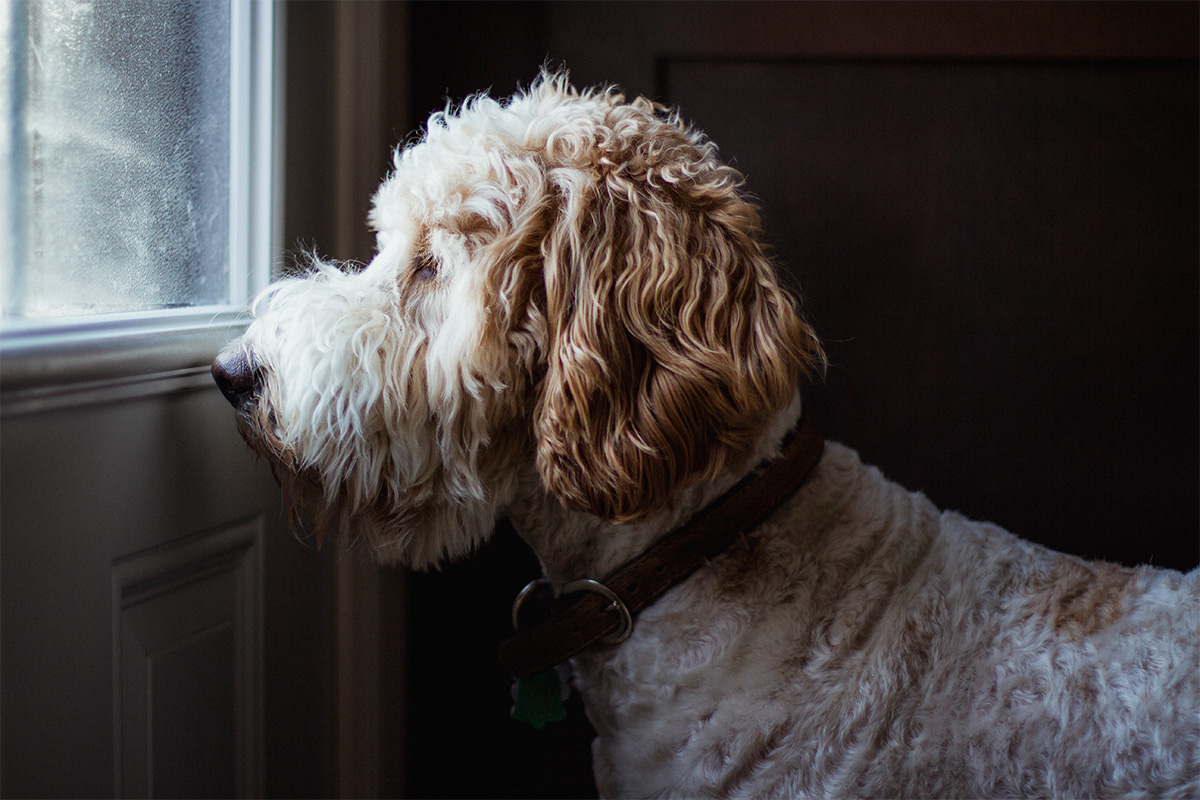I am the queen of mouthing Shabbat blessings. This is an especially tricky feat at Hillel when surrounded by Jews who have spoken Hebrew in Jewish day school since their circumcision. I’ve attended all of my cousins’ bar and bat mitzvahs, but never had my own; I celebrated Hanukkah most years but you’d be hard-pressed to find someone more confused at a sukkah than me. Until recently, Judaism represented a series of elaborate rituals in a language that I could barely read. While I’ve always considered myself to be culturally Jewish, I hadn’t considered the role of Judaism in my everyday life.
But then my dog, Shakespeare, died. He passed in my parents’ house in Idaho two thousand miles away. His death felt amorphous, untied to any kind of physical reality that proved he no longer lived and I decided to go to work as usual. After seeing a poodle tenderly kiss the cheek of a woman outside of our office window, I sprinted to the bathroom to re-compose myself. A few days later, my co-worker nudged me as I stared off into space, “Wow, you look awful, did you stay up all night having sex?!” To which I replied, “No! My dog just died!” And then jetted back into the bathroom.
As embarrassing as it is, my dog was the creature who had seen me cry the most. He’d shuffle into my room and poke my foot as I lay in my tragic kingdom of half-drunken La Croix cans, dirty clothes and food in various stages of decay. Watching him cheerfully massacre a quail in the foothills, throw up an earplug for himself, or toilet paper the entire house was the only thing that could get me out of bed some days. His joy made me want to participate in my own life with the same playful and sensitive curiosity that he had on our walks as he smelled mountain air and investigated each creature – dead or alive.
It wasn’t like Shakespeare was my dead ex-husband. I couldn’t have an actual funeral. I also couldn’t talk about him without choking up. The flurry of consoling text messages from friends and relatives felt lacking, as they couldn’t possibly understand the role he played in my family’s life. To my parents, he was the surrogate child that held their fracturing marriage together. To me, he was my sweetly devious companion who nudged me out my worst spirals of anxiety. His death left a wound that I did not know how to begin healing.
Unsure how to process my sadness, I turned to the internet. I learned that Jewish practices relating to death and mourning have two purposes: to show respect for the dead (kavod ha-met) and to comfort the living (nihum avelim) who will miss the deceased. Judaism classifies animals as livestock and while it’s considered taboo to mourn them as humans, rabbis have created rituals to honor and mourn the role that animals play in contemporary life. In place of a shiva, one rabbi wrote a prayer for a member of his synagogue who had lost two cats and instructed them to light a candle for seven days. I placed two regurgitated earplugs next to a lit candle every day for a week, and instead of freshly massacred quail, I ate chicken. As I struggled to sound out the words of the phonetic translation aloud, I realized that I had never actually heard myself speak Hebrew alone. With each night, I gradually felt more confident as I read the phonetic translation.
On the sixth night, I sensed the spirit of my dog in my tiny apartment and the knot in my stomach lessened. I felt connected to my lineage as a Jew in a way that I never had before.
In Judaism, it is a mitzvah to treat illness and take care of ourselves and ritual is essential to creating lightness in the most painful moments of our lives. I’ve found since grieving my dog in this very Jewish way, I’ve been inspired to explore more ways Judaism might find its way into my everyday life. I began listening to klezmer music while walking in the park at night; I reached out to my housemate about Reform synagogues in the city; and I realized that while I am still afraid of loudly mispronouncing prayers, the intention of these rituals matters more than perfection.



